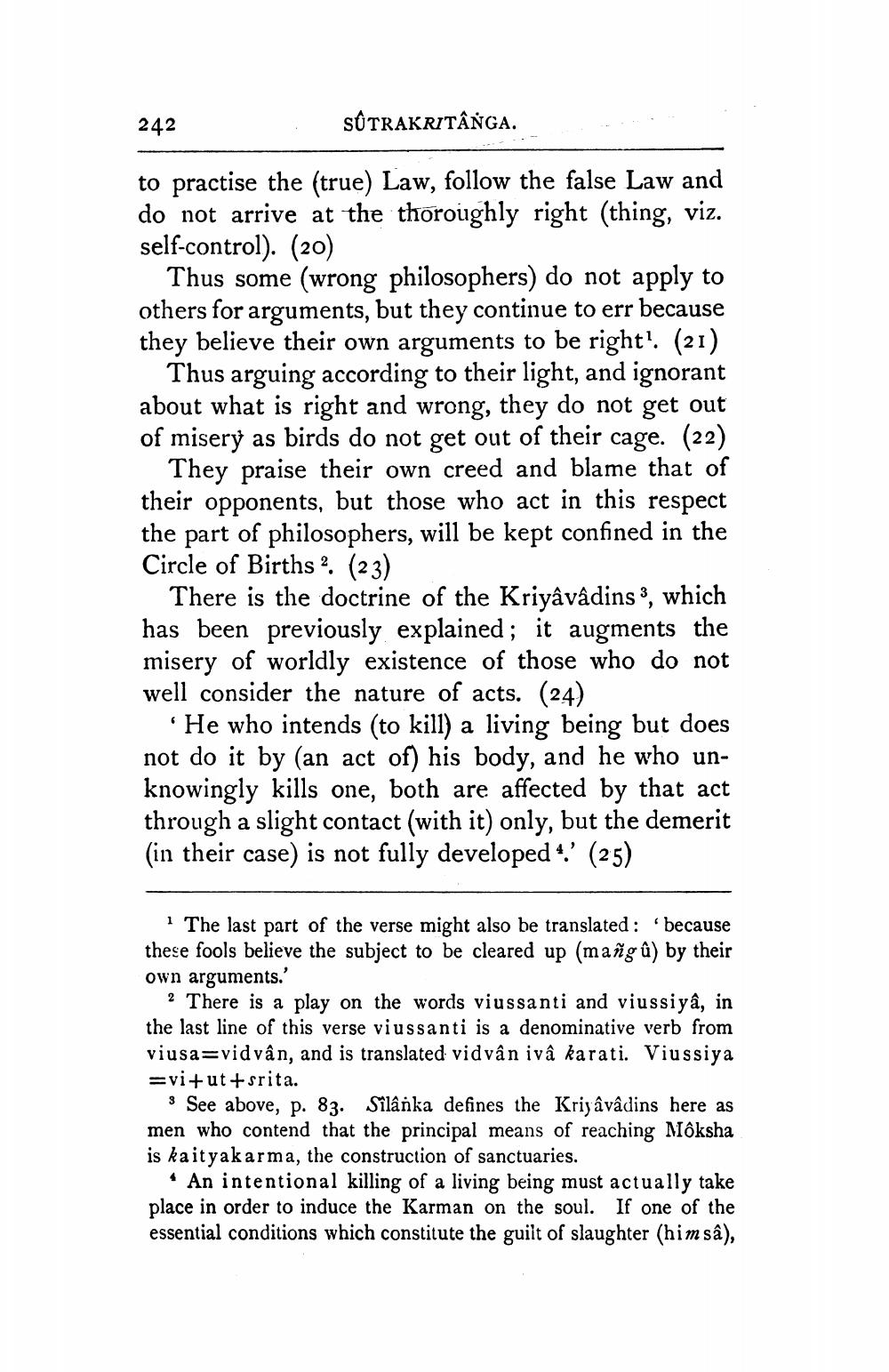________________
SUTRAKRITÂNGA.
to practise the (true) Law, follow the false Law and do not arrive at the thoroughly right (thing, viz. self-control). (20)
242
Thus some (wrong philosophers) do not apply to others for arguments, but they continue to err because they believe their own arguments to be right1. (21)
Thus arguing according to their light, and ignorant about what is right and wrong, they do not get out of misery as birds do not get out of their cage. (22)
They praise their own creed and blame that of their opponents, but those who act in this respect the part of philosophers, will be kept confined in the Circle of Births 2. (23)
There is the doctrine of the Kriyâvâdins, which has been previously explained; it augments the misery of worldly existence of those who do not well consider the nature of acts. (24)
'He who intends (to kill) a living being but does not do it by (an act of) his body, and he who unknowingly kills one, both are affected by that act through a slight contact (with it) only, but the demerit (in their case) is not fully developed.' (25)
The last part of the verse might also be translated: 'because these fools believe the subject to be cleared up (mang û) by their own arguments.'
2 There is a play on the words viussanti and viussiyâ, in the last line of this verse viussanti is a denominative verb from viusa=vidvân, and is translated vidvân ivâ karati. Viussiya
vi+ut+srita.
3 See above, p. 83. Silânka defines the Kriyâvâdins here as men who contend that the principal means of reaching Môksha is kaityakarma, the construction of sanctuaries.
An intentional killing of a living being must actually take place in order to induce the Karman on the soul. If one of the essential conditions which constitute the guilt of slaughter (him sâ),




